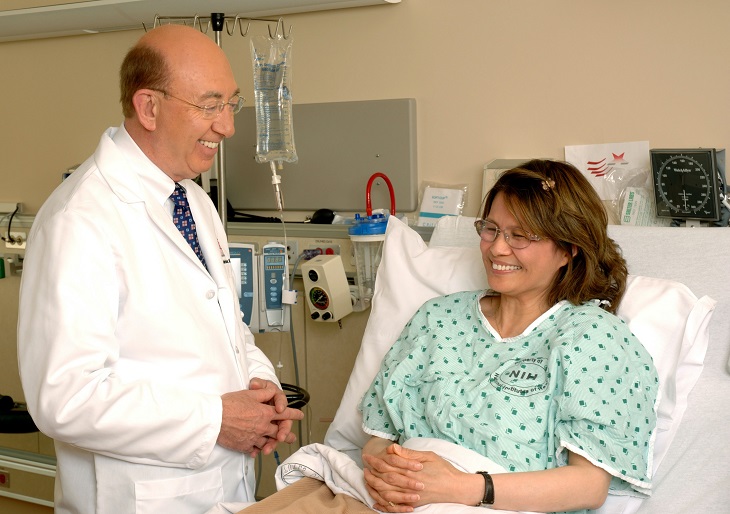THE DAILY DOSE
Thymosin Alpha-1 (TA-1) Role In Immune Function

Immune function is one of the most important aspects of human health. The immune system has three main functions: fight off pathogens such as viruses and bacteria; fight toxic substances the body comes into contact with; and fight any changes in the body that could lead to diseases such as cancer. To say that having a healthy immune system is vital would be an understatement.
There are many components that make up the immune system and how it functions. Immune cells such as T- and B-cells, also referred to as lymphocytes, are white blood cells that attack toxins, viruses, and bacteria. B-cells, in particular, also produce antibodies that aid in ridding the body of pathogens. Along with cells, the immune system is also made up of antibodies, the complement system, the lymphatic system, the thymus, the spleen, and the bone marrow. Together, these special cells, organs, and chemicals keep you healthy.
Other molecules can also have an effect on how your immunity works. Thymosin alpha-1 is one of those molecules – but what is thymosin alpha-1, exactly? And what is its role in immune function?
What is thymosin alpha-1?
Thymosin alpha-1 is a peptide hormone. It is derived from a type of protein be found in humans known as prothymosin alpha. It is naturally produced by a small and irregular-shaped gland known as the thymus. The thymus is also tasked with producing other substances such as sweat, tears, digestive juices, and other hormones.

Does thymosin play a major role in the development of immunity?
While you may have never heard of thymosin alpha-1, don’t be mistaken in thinking it’s a new or trendy peptide! While it is gaining traction in the health world of late, it has been in use since the 1960s. In 1961, to be exact, medical scientists realized that surgical procedures designed to intervene with congenital heart defects by removing part or all of the thymus had a severe effect on how the immune system functioned in newborn animals.
The effects showed that the amount of lymphocytes made by the animals was severely deficient, and the immune system had a problem mediating its response. The production of antibodies was also hindered after these procedures, and the newborn animals also suffered from the inability to grow normally. It was after all this that researchers looked at the thymus and began to investigate its role in the immune system. Thymosin was then purified, taken out of the thymus, and tested for its effects on mice; researchers found that it greatly helped their immune function.
The discovery of thymosin at that time opened the door for more research into its benefits in the use of humans with various immune function deficiencies.
What are the benefits of thymosin alpha-1?
There are several benefits of thymosin alpha-1 that have been scientifically proven since its humble beginnings in the early 1960s. One such benefit is its ability to enhance the immune system – specifically, T-cells and dendritic cells. T-cells are a type of lymphocyte that targets viruses or other pathogens. Dendritic cells, found in tissues, are designed to show antigens on the surface of other cells so that specific antigen-fighting cells can identify and destroy them. Thymosin alpha-1, as mentioned above, has been shown to enhance those cells’ abilities to do their respective jobs.
Studies have also found that thymosin alpha-1 can rid the body of unhealthy cells and stop infection or cancer growth. It does this by stimulating a higher immune response against cancer cells so that the body can fight the disease off better. Along with fighting cancer cells, thymosin alpha-1 can also suppress the growth of tumors, and help kill both fungus and bacteria cells that may cause harm in the body.
Some more recent research surrounding vaccinations and thymosin alpha-1 has found that people who receive a vaccine while also being given thymosin are more likely to be effectively immunized than those who do not. Additionally, thymosin has also been used to help reduce the risk of severe COVID-19 infections in people who are battling and being treated for cancer. Since cancer treatments often cause a weakening of the immune system, and COVID-19 can thrive in those conditions; thymosin has been shown to be a helpful tool in that specific instance.

How do you take thymosin?
Thymosin alpha-1 is typically administered via subcutaneous injection. This means that it is given in a needle under the skin. Does of thymosin alpha-1 range, but two separate doses of 0.8–6.4 mg twice per week to 1.6–16 mg for five to seven days is typically the standard.
That being said, some studies have found that thymosin alpha-1 can be taken orally when it is expressed by yeast. The use of oral thymosin, however, is not the first choice for many medical professionals – injections are the best course of administration for many patients looking to improve immunity with thymosin alpha-1.
While thymosin alpha-1 may not be a household name, it has been known in the medical community for decades because of its highly beneficial properties. When it comes to the immune system, this peptide has proven to be effective at modifying the immune response, enhancing the body’s ability to fight off infection or disease, and restoring immune function in people who have compromised immunity.